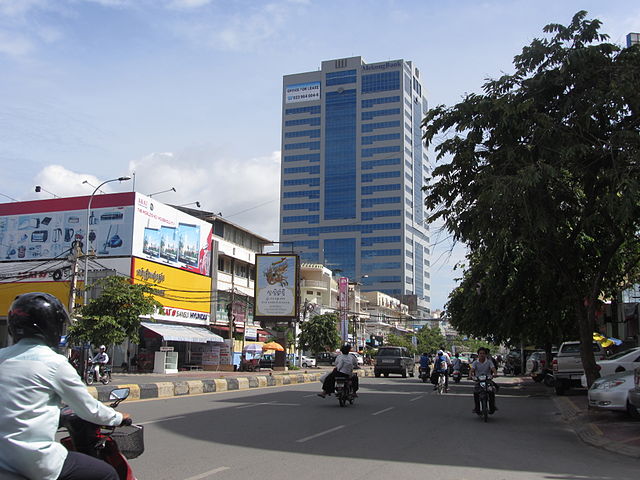
ADB president Takehiko Nakao, who recently visited the Southeast Asian economy, said the country’s rapid growth—driven by strong gains in industry, services, and agriculture—has brought it to the verge of transitioning from a low-income to a middle-income country.
“Cambodia is among the world’s fastest growing economies,” Nakao said. “It has rapidly reduced poverty from nearly 50% of the population in 2007 to just 19% in 2012, although many people have moved only slightly above the poverty line and remain vulnerable.”
The gross domestic product of the country, a member of the Association of Southeast Asian Nations, expanded at an average annual rate of 6.5% between 2007 and 2014. ADB predicts growth of 7.3% in 2015, underpinned by well-managed inflation, a stable exchange rate, and sustained competitiveness.
Nakao noted, however, that the economy is vulnerable to external price and demand shocks due to dependence on sectors such as garments—which comprised 71% of exports in 2013—despite recent success in producing more sophisticated products such as electronics components.
He called for further reforms to improve the business climate to attract foreign capital and expertise that would accelerate the economy’s diversification. Ensuring stable supplies of electricity and reducing its cost—currently among the region’s highest—and improving access to finance for smaller enterprises would enhance the private sector’s contribution to growth.
Nakao added that if the Industrial Development Policy is approved it will provide a comprehensive framework for more broad-based and sustainable economic growth.
Steady progress has also been made on reforming public financial management, Nakao noted. The government’s Public Financial Management Reform Program supported by ADB had improved budget credibility and financial accountability, and is strengthening linkages between the budget and government policy and programs.
Another key to inclusive growth is to address low educational achievement and a mismatch between the skills of graduates and those needed by industry, said Nakao. He commended sharp increases in primary and secondary enrolments in recent years. But the fact that only 32% of the labor force is educated beyond primary school highlights the importance of curbing drop-out rates, said the executive.
ADB likewise urged Cambodia to upgrade inadequate infrastructure services. Much of the country’s rural road network is in poor condition, inhibiting the movement of people and goods within Cambodia and into neighboring countries.
Photo: Kiensvay









